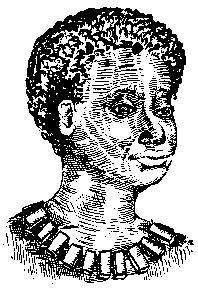
Queen Marimba
REAL HISTORY
The Queen’s Gift
Amongst the Zulu people of South Africa stories have been told for many years about the great Queen Marimba. She brought peace and prosperity to her people, and invented many of their musical instruments. This is one of those stories.
|
|
In the reign of the blessed Queen Marimba there was born a
little girl called Nonikwe. She was hunch-backed and blind, and her father, who
was the chief of the tribe, refused to accept her as his daughter. Her mother
was banished, and Nonikwe grew up in the tribe of her uncle, who was called
Mutengu. Mutengu was a good man, and a wise chieftain, and he treated his little
niece kindly. As she grew older he saw that although blind, she was gifted with
great understanding. She often foretold things that had not yet happened, and
soon she became famous amongst her people. At last her father heard of her
wonderful gift and demanded his daughter back. Mutengu refused, and the two men
became enemies.
Nonikwe’s father began to tell many false stories about Mutengu
to the queen, Marimba. After some time she decided to find out if these stories
were true, and set out for Mutengu’s village in disguise.
Early the next morning little Nonikwe came to her Uncle.
“Dear Uncle,” she said, “last night I dreamt that the Queen
was coming to visit us in disguise. I think she will arrive this afternoon.”
“Very well, Nonikwe,” said Mutengu. “I know that your
predictions are never wrong. I will prepare a great feast.”
People were invited from miles around, and yams, corncakes and wild
figs were set out in clay bowls. Mutengu was a famous beekeeper and cakes of
delicious honey were also set out in preparation for the Queen’s arrival.
At around midday an old man and his daughter arrived at the
village. The guards showed them to an empty hut, and gave them food and drink;
no one guessed that this was Queen Marimba.
|
|
When the sun began to set Mutengu went to little
Nonikwe.
“My child,” he said gently, “I fear you were mistaken. The
Queen has not come.”
“But yes, Uncle, she is here,” said Nonikwe. “I can feel that
she is amongst us. She is pleased with her little trick, and has already decided
that my father spoke falsely about you. Call all the guests to the hut, and I
will point her out to you.”
Mutengu obeyed and soon all the guests were assembled outside the
hut. Without any hesitation the little girl walked up to the old man and his
daughter and knelt down before them. Mutengu gazed at the young girl in
amazement.
“Are you indeed our Queen – are you Marimba?” he asked, “Why
have you played this trick upon me?”
“I came here to see for myself if what your enemy said was true,”
said Marimaba. “ I am glad to say that it was not. You are a worthy leader of
your people. Now let us enjoy the feast, and then perhaps we can perform a dance
to thank our host for his generosity.” Everyone was filled with joy to know
that the Queen was amongst them, and they hurried to carry out her commands.
“Tell me,” said the Queen to Mutengu, “how did you know that
I was here?”
“My little niece, who is gifted with understanding told me so, O
Marimba.”
Marimba smiled at the little girl.
“I shall give her a special gift, and when we have deposed her
unkind father, I shall make her the chieftainess of her village.”
At this the guests cheered loudly and chieftains arose and held up
their right hands as a token of respect to little Nonikwe.
“Here, little one, this is an instrument I have made, and it is
for you,” said Queen Marimba. “It is called a mukimbe, or hand xylophone.”
So saying she placed the instrument in the child’s hands.
Little Nonikwe pressed it to her heart and tears of gratitude rose
to her eyes.
“Thank you, thank you, O my queen,” she said. “I honour you
with all my heart and may you grow as tall as the tallest of tall trees.
“Do not cry little Nonikwe,” said the Queen. “ I will see
that you are happy for the rest of your life. Come and sit at my side during the
feast.”
Thus it was that the blind child was given the first mukimbe. It is
still played to this day and is particularly suited to the blind, or to those
recovering from illness. Its sweet notes have restored many to health, and for
this reason it is often called ‘ the sick one’s comforter’.
~Bethan Lewis~